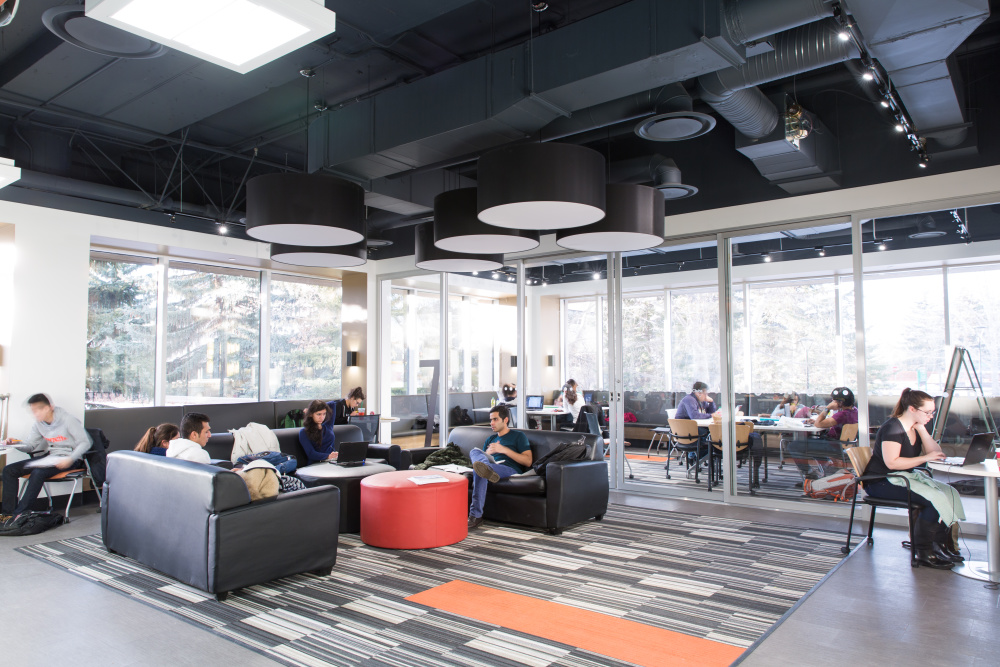Inventory of Promising Practices
CATEGORY 7: MACRO-LEVEL PLACEMENTS

Defined as the need for more macro-level field placements.
Practice 1:
Creating opportunities for “sector-based” practicum placement (e.g., around issues of housing/homelessness) vs. traditional one-on-one agency placement (may involve working in the shelter system, as an example, for front-line practice experience)
Sector-based placements have the potential to address additional needs that exist in specific communities.
- Another practice that I would love to see, but would need a lot of time in my schedule to be able to plan and think and resource, would be, instead of placing students one-on-one with a community agency, placing students kind of in a sector area of practice … for instance, in, let’s say the, the topic area is housing, or, and, or homelessness, right? That … practicum would involve, kind of like looking at the issue or the practice area at a micro, mezzo, and macro level. So, part of the practicum might be working in, or being exposed for a brief period of time, to working in the shelter system” (Interview Participant, Ontario Region)
- “Another example, would be, like, food security, right? Like, spending time understanding what’s happening in food banks, to, then maybe, being a part of planning … the direct practice element. And then moving it to maybe a research component around access to healthy and nutritious foods, right? Then, maybe looking at food security policies at a Provincial level, right?” (Interview Participant, Ontario Region)
Practice 2:
Creating additional macro-level placement options centered on research and policy that introduce students to a different level of social work intervention
Addresses the need for research and policy placements and developing an increased appreciation of the role of research in social work profession.
- “[…] I think that if we expand our notion of what a practicum should look like and what skills get developed, it means we don’t just focus on micro skills. We also need to think about what happens at a community level and what also happens at a macro level.” (Interview participant, Prairie Region)
- “For students who want to do an intervention project, we have developed links with the institution and even the community, when people have subjects that require a response, perhaps at the research level, things like that… there is a link that is made directly with the students. For example, their intervention projects are directly linked to a concern that comes from the internship environment. For example, if I’m concerned about 16- to 25-year-old LGBTQ people, I can work with a community organization to develop a group with 12 young people of that age on different themes. That will be my research project for me at the master’s level. And at the same time, all that I will find as an answer to the research will feed the community in terms of intervention.” (Interview Participant, Quebec region)
- “There are other organizations that are membership-based, and to remember that those members are going to have a common interest and a wide range of experience, knowledge, and wisdom about the topic. I’m wondering if other membership-based associations might be able to provide placements for mature students who already have in-person case management clients, have contacts, but who really want to delve in deep to a particular issue, or advocacy, or service, or program. It might be a way to garner a huge amount of knowledge.” (Interview Participant, BC region)
Practice 3:
Having students involved in social justice projects or community-level events
Providing students an opportunity to advocate on community issues and ways to connect field learning to the strengths of the community.
- “Social justice projects, planning events, being involved in research, and kind of thinking about that a little bit differently because clinical social work also needs to think about how do you manage a project? How do you organize an event or bring people together? It’s too much focused on the individual and what happens at the micro level. I think a lot gets lost in kind of thinking about what is really the nature of social work practice. And it includes a lot more than clinical individuals’ skills.” (Interview Participant, Prairie Region)
- “I feel like a lot of the students are getting good experience somewhat in individual casework, groupwork, but not so much community work. And I feel like there is a gap generally. Seen in the West, organizing principles, ability to especially like now that we’re seeing all this work that has gone on. Whether you look at the US elections or whether you look at Black Lives Matter, it’s all about community organizing and traditionally, social workers are supposed to be good community organizers, so I feel like that is a part which could be strengthened. To get more students to do community work and to actually understand what it takes to do that kind of work, right?” (Interview participant, Prairie Region)





